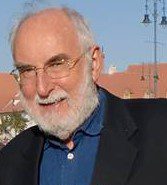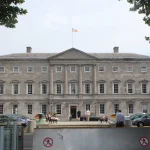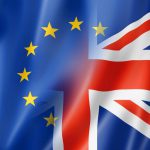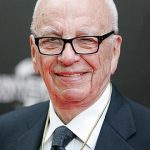A commentary from Anthony Robinson, AEJ member and former FT eastern Europe and Russia correspondent
5 July 2022
Everybody got it wrong. Most Western governments didn’t think Putin was daft enough to mount a full scale invasion of Ukraine. Putin completely misjudged the determination, strength and skill of Ukrainian armed resistance and the speed and extent of western sanctions.
Years of international bullying, ruthless use of the energy weapon and “salami tactics” allowed Putin to occupy chunks of Georgia, annex Crimea and send “little green men” to occupy a substantial slice of Eastern Ukraine. He also brought Belarus back into the Russian embrace and sent planeloads of Spetznatz troops to re-establish a protectorate over Kazakhstan. And the West collectively sucked its teeth. Why should taking Ukraine back where it belonged, in Mother Russia’s arms, be any different?
The irony is that the “West” was as surprised as Putin by the strength and speed of its collective reaction to a “special military operation” which Putin did not even tell his Prime minister about, and which is still being portrayed in the tightly controlled and mendacious Russian media as a heroic struggle against fascist Ukrainians.
Even Germany, together with France, the arch appeaser, suddenly saw the light. Berlin abandoned the NordStream2 gas pipeline and Chancellor Scholz pledged to invest $100bn to replace Germany’s broom-stick army with a modern fighting force and pay its full NATO dues. The German, French and Italian leaders trooped together to meet President Zelensky in Kyiv to symbolise their new-found solidarity while Boris Johnson in Kyiv compared Ukraine to the Britain of 1940 in Johnsonian, sub-Churchillian prose.
The AEJ’s guest, banker and strategic analyst Timothy Ash, took us on a tour of this “new Cold War” world and explained that western arms supplies, military training and economic and financial sanctions became the West’s main tools to hit back at Russia, given the unwillingness of NATO to directly confront a nuclear armed Russia.
The aim of economic and financial sanctions is to wound the sanctioned as much as possible while keeping to a minimum the inevitable cost to sanctioners. What several AEJ members wanted to know was, given Russia has been under western sanctions since 2014, and other countries like Iran for longer and harsher sanctions, why should results this time be different?
Are sanctions on Russian oil and gas, for example, merely a case of the West cutting off its nose to spite its face, given that the resulting scramble for non-Russian energy and fertilisers has pushed global prices sky high, exacerbating global inflation while boosting Russian receipts – the very thing sanctions are supposed to prevent?
In the long run there can be little doubt that Russia will suffer massively from the spread and level of sanctions currently being applied. In the short run, however, Western governments and populations face a powerful inflationary spike from higher energy, food and fertiliser prices reverberating throughout the global economy at a time when central banks are raising interest rates and ending years of cheap and easy money.
The Euro in particular is likely to come under increasing strain, as highly indebted, energy importing economies such as Italy suffer from widening interest rate spreads. Even the powerful export-orientated German economy has recorded its first trade deficit since the early 1990s in the face of higher energy and container transport bills, Covid-induced component shortages and a slowdown in Chinese and other key markets.
The US scuttle from Afghanistan, clear signs of political weakness in the UK — culminating in the demise of Boris Johnson — and in France, where Macron is now much weakened, and in Italy, together with a shaky coalition in Germany, not to speak of Biden’s troubles and the possibility of a second Trumpian dystopia in the US, all contributed to Putin’s miscalculation about the western response to his invasion of Ukraine. At the same time much of the global south is indifferent to Russian belligerence and seeking to benefit where they can from cut price energy, mineral and stolen grain deliveries.
While Putin can look forward to further divisions and probable weakening of western resolve as inflation and rising interest rates point to looming recession, Tim Ash argues that market economies will adjust relatively quickly to the new economic realities. However, the short term gains that Russia is making from the war induced energy and food price hikes are masking a dramatic deterioration in Russia’s longer term economic and social future.
The invasion of Ukraine has already led to a massive brain drain and capital flight from Russia and the heavy cost of replacing destroyed or damaged military equipment, not to speak of many thousand military dead and wounded. As a banker and financial analyst, Tim Ash emphasised the unprecedented move by Western governments to freeze some $300bn of Russian reserves, carefully built up as a war chest by Putin but deposited electronically in Western banks. Over $100bn in assets owned by Russian oligarchs has also been impounded.
While an extra $200bn has flowed into Russia from higher energy prices, the level of reserves actually fell from $640bn before the invasion on February 24 to $582bn currently, implying a $60bn capital drain. The rouble has also recovered from its initial sharp devaluation. But this is largely because Russian companies and consumers are simply not able to import the goods and equipment which they need. Without vital imports the country’s GDP is likely to crash some 10 per cent this year and deteriorate far more on the longer term as Western consumers of energy and other sanctioned Russian products find new and more reliable suppliers.
The severe economic dislocation caused by the war and the west’s response has underlined how dependent Europe allowed itself to become on Russian energy and raw materials, but also how dependent and therefore vulnerable the Kremlin is on the income from exports whose price is determined by global market forces out of its control.
A Russian economy which has lost its reputation as a reliable supplier of energy and other raw materials, which is starved of access to western capital markets, deprived of access to the western dominated banking system, and whose companies and expertise are seen as a pariah, faces a bleak future of falling incomes and employment and LIKELY growing social unrest. Apart from manufacturing steel, aluminium, weapons and nuclear power stations, the Russian economy essentially digs out God created natural wealth and exports it for others to use more creatively.
Given Russia’s high dependence on energy and commodity products whose value depends on global market forces, Putin took on board the need for a sound central bank to maintain macroeconomic stability. Years of high export prices allowed the Kremlin to run a strong balance of trade surplus and build up a war chest of reserves. Rising tax revenues enabled Putin’s siloviki regime of secret policemen to invest heavily in police and security services and modernise the armed forces. Salaries and living standards however stagnated for the best part of a decade.
In vain, ”loyal” liberal economists, such as Alexei Kudrin and Vladimir Mau, tried to persuade Putin to spend less on the army and police and invest much more in badly neglected education and health and in raising living standards. The voice of those seeking to make Russia a sort of Eurasian Canada and spreading wealth was ignored.
At Chatham House a few years ago I asked Vladimir Mau, who headed the Higher School of Economics think tank, why there was so little reform. “Because there is no demand for it,” was his laconic reply. The FT reported this week that Mau, Russia’s smartest economist, has just been put under house arrest. At the same time Putin has started nationalising the assets of departing foreign investors, including Shell’s massive investment in the offshore liquified gas project off Sakhalin island in Siberia, and taking greater control over private business and workers to put the economy on a stronger war footing.
Meanwhile powerful voices among the siloviki are believed to be calling on Putin to stop fighting with one arm tied behind his back and go for full throated military mobilisation. It looks as though the worst of this war is yet to come.








